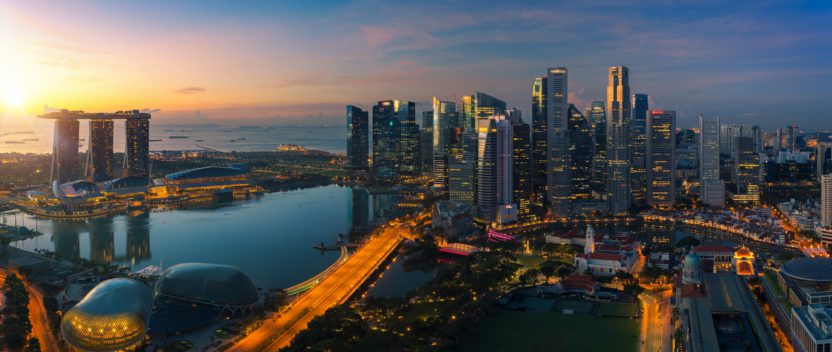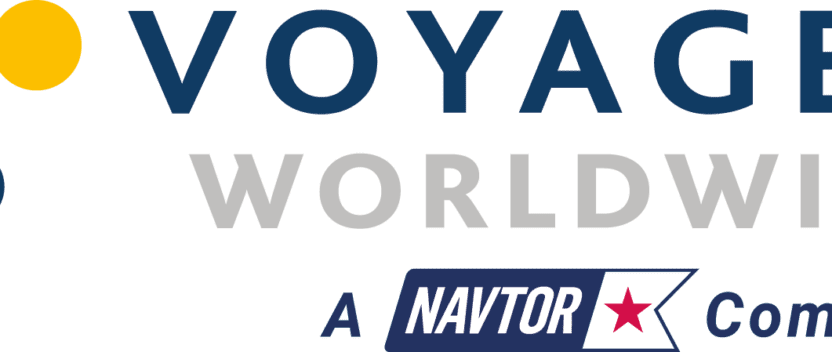A roundup of news for June 2014

While the industry descended on Athens for Posidonia we have been keeping an eye on the news agenda. As UK ports dipped their toes in crowd-sourcing, the Malacca Straits prepares for the next stage of e-Navigation. DNV-GL celebrated 151 and one of the world’s leading flag states told IMO no more shipping regulations were needed.
While the industry descended on Athens for Posidonia we have been keeping an eye on the news agenda. As UK ports dipped their toes in crowd-sourcing, the Malacca Straits prepares for the next stage of e-Navigation. DNV-GL celebrated 151 and one of the world’s leading flag states told IMO no more shipping regulations were needed.
Crowdsourced bathymetry for Port of Milford Haven
TeamSurv says it has secured agreement from the ports of Milford Haven and Weymouth to take part in trials for a crowdsourced hydrographic survey project.
Vessels of all types and sizes, from large tankers to small workboats and yachts are being recruited to log data from their GPS and depth sounders and upload it to the TeamSurv web site where it is validated and used to produce enhanced maps of the ports’ bathymetry in the selected areas.
The Port of Milford Haven will conduct trials with TeamSurv over the coming six months covering areas of the port away from buoyed channels which are less frequently surveyed.
About 1,200 small craft are based in the Welsh port, which is visited by 600 commercial fishing vessels a year and a number of commercial ships. TeamSurv aims to recruit as many regular users as possible for the project that will complement the current survey regime and provide additional early detection of areas of silting.
Tim Thornton, founder of TeamSurv told The DigitalShip; “the size and variety of the port, from oil and gas tankers near the entrance through to the extensive nature reserves and waters for the leisure user mean that it is ideal in demonstrating the value of the TeamSurv concept to ports and harbours.”
DNV GL celebrates 150 years (plus one)
DNV GL, the classification society formed by the merger of Norway’s DNV with Germanischer Lloyd has celebrated the 150th anniversary of the foundation of Det Norske Veritas and the first year of operation of the newly formed DNV GL Group.
DNV GL Group CEO Henrik Madsen reflected on DNV’s history and the new group’s drive to make a positive impact on the world through innovation in launching a report entitled ‘A Safe and Sustainable Future’.
“Our ambition has been to explore where we can leverage our history and expertise to translate our vision into impact,” he said. “Through these projects we take a broader view on society. We sincerely hope that our work can inspire and promote new and radical forms of collaboration between authorities, civil society, academia and business.”
For GL and its home city of Hamburg, the impact of the merger has been positive, especially given the hard times being suffered by many German shipowners. Together, the two companies have nearly 300 years of operational experience and technical know-how, making it an important partner to the City in developing and pursuing a sustainable economic strategy for strengthening and further developing the local maritime economy.
No more IMO Conventions, says Liberia flag boss
The Liberian Registry has called on shipping regulators to prioritise the effective implementation of existing regulations rather than creating new rules. Liberian flag CEO Scott Bergeron said that while flags were a powerful means of enforcement, other regulators failed to enforce the rules.
“[This] is really troublesome because the result of ineffective implementation is yet more regulation. I think the industry already has enough regulations and creating new ones just as a political or public reaction to accidents is very short-sighted,” he said.
Bergeron described as ‘critical and appropriate’ the decision of IMO to select ‘International Conventions – Effective Implementation’ as the theme for World Maritime Day 2014.
“The ISM Code should be the last regulation from IMO, because every new requirement, whether political, environmental or safety-related, could be incorporated into ISM. We don’t need new conventions. We don’t need new regulations. What we need is for everything to be encapsulated in a single operating concept such as the ISM Code. And we need improved management and effective implementation and enforcement of provisions such as ISM,” he said.
He ‘applauded’ the work of IMO and called on other flag states to work with Liberia to achieve effective implementation of existing regulations. “Too much time, too much energy and too much expense has been wasted on new regulations. Let’s focus on the ones we have, and make sure they are working properly, rather than creating new ones,” he added.
Kongsberg leads e-Nav project for Malacca and Singapore Straits
Kongsberg Norcontrol IT is to lead a three-year project called Secure, Efficient and Safe Maritime Traffic Management in the Straits of Malacca and Singapore, to be known as SESAME Straits.
As a test-bed for IMO’s e-Navigation implementation strategy, the project is designed to foster the safety and efficiency of ship navigation worldwide. It will develop and validate a concept for a next generation ship traffic management system in the Straits of Malacca and Singapore.
Partly funded by the Research Council of Norway SESAME Straits is the first to be delivered under the international straits e-navigation alliance. The project will receive input and guidance from the straits e-navigation alliance advisory board which includes governmental members from Singapore, Norway, Malaysia and Indonesia and experts from major maritime organisations.
Kongsberg Norcontrol IT has already established a C-Scope VTS system for the Maritime and Port Authority of Singapore, experience it says will benefit the company’s work on the new project, which will build upon the earlier IMO marine electronic highway demonstration project.
A GIFT for measuring shipping emissions
A US research initiative has released the web-based version of its Geospatial Intermodal Freight Transportation Model (GIFT), a tool which it says allows companies to compare the economic costs and GHG emissions associated with different transport modes.
Developed by researchers at the Rochester Institute of Technology, the University of Delaware and the US Department of Transportation’s Maritime Administration, the technology utilises mapping software and analyses the economic and environmental performance of road, rail, air and sea.
The new web-based version, WebGIFT, includes tested case studies that indicate which shipping routes may produce lower emissions and lower costs. Emissions rates, cost factors and other variables can be adjusted to reflect a variety of operating scenarios.
James Winebrake, one of the authors of UD’s controversial study that claimed as many as 60,000 deaths a year could be attributed to shipping pollution emissions, said GIFT could be used by a company planning to move goods from Asia to the US to evaluate time-of-delivery, environmental impacts and economic costs associated with the freight movement.
Shipping gets (more) social
Shipping has a new social media hub with the launch of Shippingcluster, a network designed for the maritime industry. The Norwegian-based initiative allows individuals and firms to create industry profiles using industry keywords and be ‘discovered’ by the wider shipping community.
Founding partner CEO Eirik Fosse says more than 500 professionals and 100 companies from over 30 countries since it launched last month and the site has recently added a maritime jobs sector, where openings can be posted and tagged by keyword.
Future plans include messaging functionality and industry events, so members can communicate one to one and to a broader audience. The website has a mobile version and industry apps, including third party services are in the pipeline.
Fosse says Shippingcluster is designed to provide a more industry-specific service than is possible through LinkedIn. “In the near future I expect to see all industries having industry-dedicated social networks,” Fosse told The Digital Ship. “The one-size-fits-all concept is being challenged by specialised networks tailored to industry specific needs, without all the unrelated noise.”
Membership of Shippingcluster is by invitation only and individuals must request membership or be invited by any existing member, via www.shippingcluster.com.
Ends


